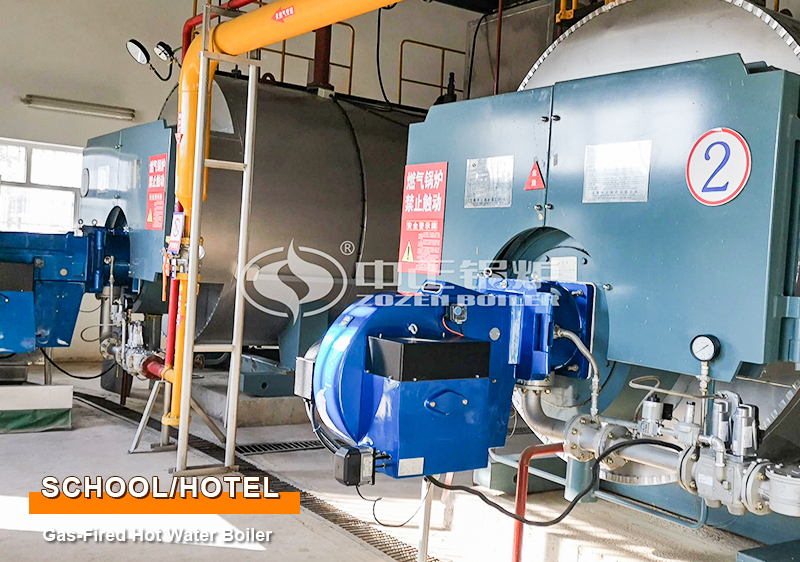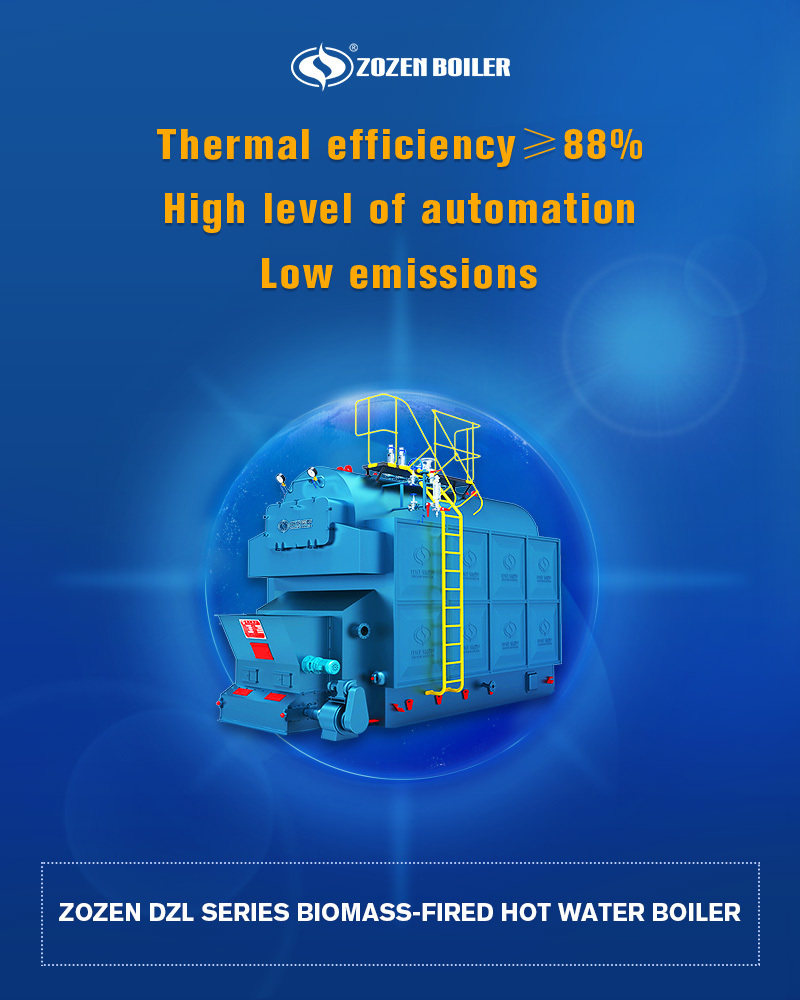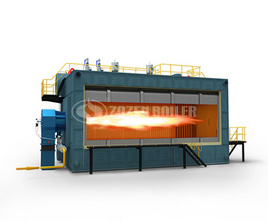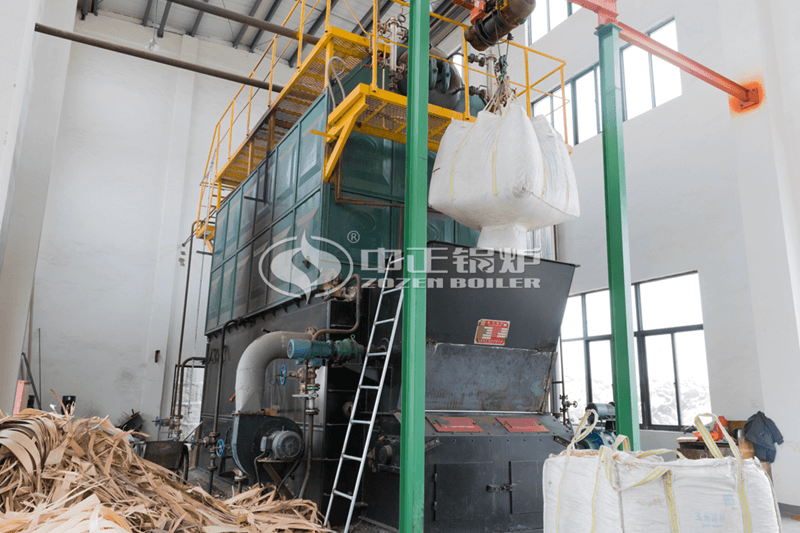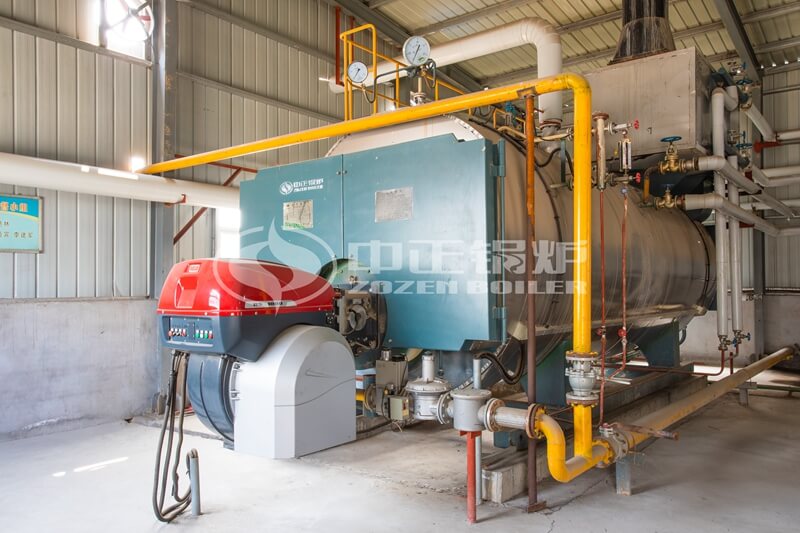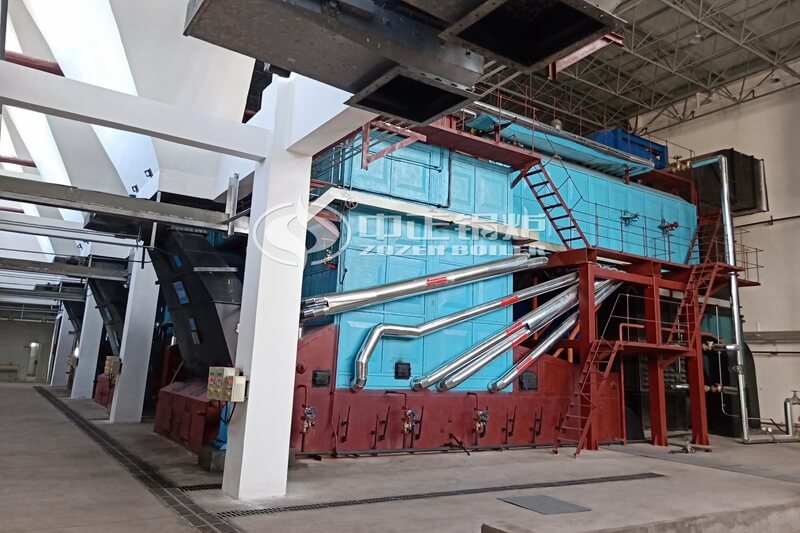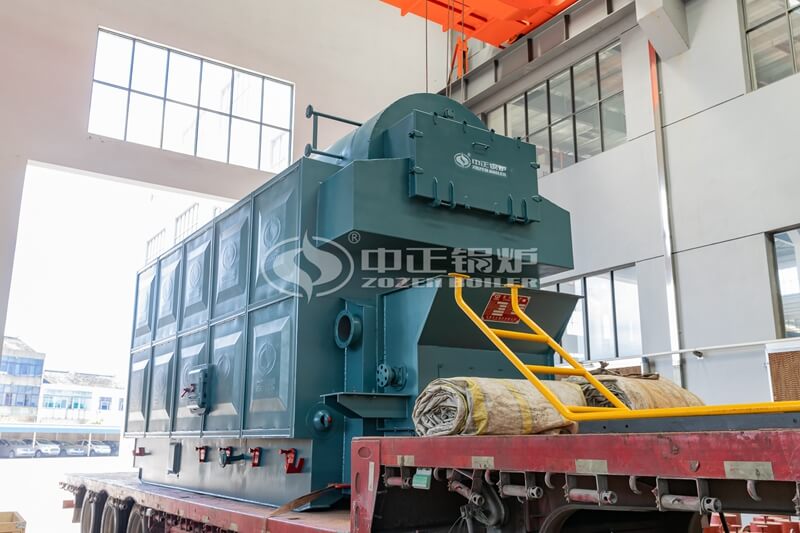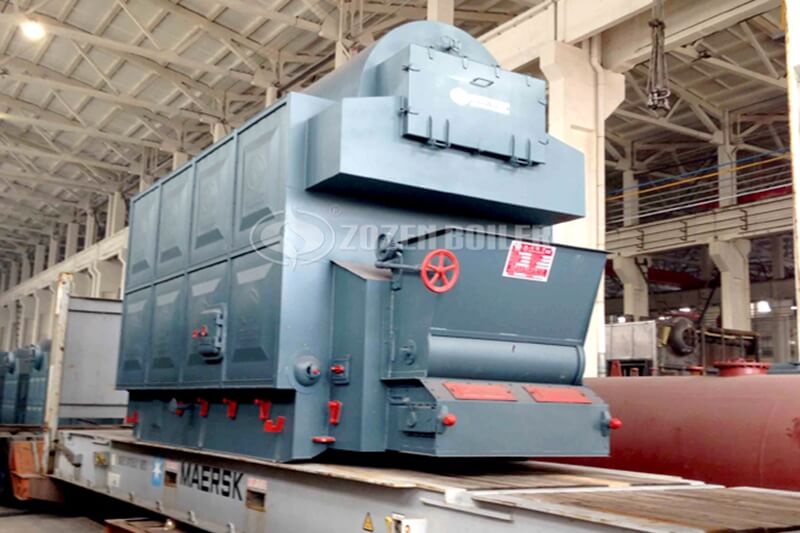The thermal efficiency of the 35-ton oil-fired hot water boiler refers to the percentage of effective heat in the heat input by the fuel. The thermal efficiency of large boilers is now between 80% and 90%. Understanding the thermal efficiency of oil-fired hot water boilers is the key basis for the correct evaluation of the operation of the 35-ton oil-fired hot water boiler. This article mainly introduces how to calculate the thermal efficiency of oil-fired gas boilers.
Under a certain load, the net efficiency is related to the feed water temperature, excess air coefficient, the ratio of the first, second and third air, the fine coal fineness and the cleanliness of the heated surface. Usually, a fine combustion adjustment test must be carried out in order to obtain better operating conditions under various loads as a basis for daily operation adjustment to ensure the economic operation of the 35-ton oil-fired hot water boiler unit.
Excessively high air coefficient will increase the power consumption of the blower and induced draft fan, increase the smoke exhaust loss, and increase the wear of the heated surface of the tail. At the same time, the furnace temperature will be lowered and the fire will be delayed. The completeness of combustion is reduced, especially when inferior coal is burned, it is easy to cause flameout, which increases the emissions of SO3 and NOX.

Excessively low excess air coefficient will increase the heat loss of incomplete combustion of machinery, cause coking in the furnace, increase the risk of ash in the heated area, and may also cause the deflagration of pulverized coal gas flow.
Boiler feed water is sent from deaerator through feed water pump and high pressure heater. When the operation of the high-pressure heater changes, the feed water temperature will also change. For example, if the high-pressure heater is disengaged, the temperature of the feed water will decrease more. If the amount of tender material remains unchanged, the 35-ton oil-fired hot water boiler evaporation will decrease, the flue gas temperature at all levels will decrease, the flue gas temperature will decrease, and the 35-ton oil-fired hot water boiler efficiency will increase.
Boilers operating under a better excess air coefficient is very unfavorable. At this time, it will cause slagging and corrosion on the heated surface in the furnace, which will affect the safety of 35-ton oil-fired hot water boiler operation. Generally, under high load operation, due to the high temperature of the furnace, the ignition and mixing conditions of the fuel are good, and the combustion is stable. But at this time the heat loss of exhaust smoke is relatively high.




